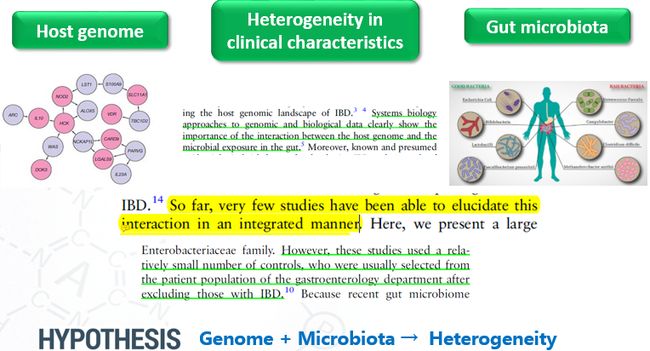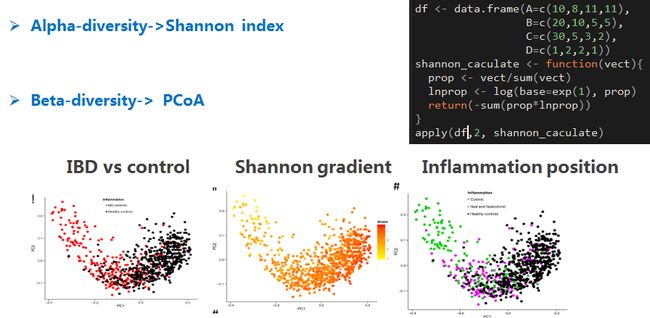- NVIDIA Hopper解说
白总Server
redis数据库缓存rustmongodb大数据数据仓库
NVIDIAHopper架构是NVIDIA推出的面向高性能计算(HPC)和人工智能(AI)的最新一代GPU架构。它代表了NVIDIA在加速计算领域的最新进展,旨在为AI训练和推理、HPC应用提供前所未有的性能提升。NVIDIAHopper架构和基于该架构的GPU产品H100的详细信息:NVIDIAHopper架构技术特点:第四代TensorCore:Hopper架构引入了第四代TensorCore
- 解决 GitHub 端口连接超时
御风牧云_
Android开发环境配置
一,前言GitHub端口默认使用的本机端口为22,某些情况下如果此端口被占用,就会导致GitHub连接超时错误。ssh:connecttohostgithub.comport22:ConnectiontimedoutWindows下可以通过下面的命令,来查看端口占用情况netstat-ano二,解决方案可以通过SSH命令临时修改端口号为443,测试是否可以连接到GitHubssh-T-p443gi
- PouchDB + Dexie.js:构建高效的离线优先同步方案
maply
前端Node.jsjavascript开发语言前端dexie.jsPouchDBIndexedDB
PouchDB+Dexie.js:构建高效的离线优先同步方案在现代Web应用中,离线优先(Offline-First)已成为提升用户体验的关键策略。尤其是在网络环境不稳定的情况下,用户仍然可以访问和操作数据,并在网络恢复后自动同步。PouchDB和Dexie.js是IndexedDB生态中两款强大的库,结合它们可以构建一个高效、可扩展的离线优先同步方案。在这篇文章中,我们将深入探讨:Dexie.j
- php.ini配置中有10处设置不当,会使网站存在安全问题
瑆箫
php安全开发语言
在php.ini配置文件中,有一些设置如果配置不当,可能会导致网站面临安全风险。PHP的安全性很大程度上依赖于这些配置选项的正确设置。以下是10个可能存在安全问题的PHP配置项,如果配置不当,可能会导致网站存在安全漏洞:1.display_errors问题:启用错误显示时,PHP会将错误信息直接输出到浏览器,这可能会泄露敏感信息(如数据库密码、文件路径等)给攻击者。解决方法:应该禁用错误显示,特别
- LLMs,即大型语言模型
maopig
AI语言模型人工智能自然语言处理
LLMs,即大型语言模型,是一类基于深度学习的人工智能模型,它们通过海量的数据和大量的计算资源进行训练,可以理解和生成自然语言。LLMs的核心架构是Transformer,其关键在于自注意力机制,使得模型能够同时对输入的所有位置进行“关注”,从而更好地捕捉长距离的语义依赖关系。LLMs在众多领域都有广泛的应用,如自然语言理解(NLU),语言生成,以及语音识别和合成等。例如,它们能够理解人类的语言
- 随机森林分类算法原理与实验分析
ningaiiii
机器学习与深度学习随机森林分类算法
随机森林分类算法原理与实验分析1.引言随机森林(RandomForest)是一种集成学习方法,它通过构建多个决策树并结合它们的预测结果来进行分类。你可以把它想象成一个“团队决策”的过程:团队中的每个成员(决策树)都独立发表意见,最后通过投票决定最终结果。这种方法不仅提高了模型的准确性,还增强了模型的稳定性和鲁棒性。随机森林的主要特点是通过随机选择样本和特征来构建多个决策树,从而避免单棵决策树可能产
- 【MySQL】JDBC的连接
m0_74823388
mysql数据库
目录一.具体操作如下1.注册驱动二.实操JDBC(JavaDataBaseConnectivity)java数据库连接,是JavaEE平台下的技术规范,其定义了在Java语言中连接数据,执行SQL语句的标准,可以为多种关系数据库提供统一访问。一.具体操作如下1.注册驱动Class.forName("com.mysql.cj.jdbc.Driver");2.获取连接DriverManager(驱动管
- 【架构】前台、中台、后台
m0_74823388
架构
文章目录前台、中台、后台1.前台(Frontend)特点:技术栈:2.中台(Middleware)特点:技术栈:3.后台(Backend)特点:技术栈:示例场景前台:中台:后台:小前台大中台一、定义与概述二、小前台大中台架构的优势三、小前台大中台架构的应用案例前台、中台、后台在企业架构和软件开发中,“前台”、“中台”和“后台”分别指代不同层次的系统或组件。这三个概念通常用来描述企业内部信息系统架构
- 第79期 | GPTSecurity周报
云起无垠
GPTSecurityAIGCgpt
GPTSecurity是一个涵盖了前沿学术研究和实践经验分享的社区,集成了生成预训练Transformer(GPT)、人工智能生成内容(AIGC)以及大语言模型(LLM)等安全领域应用的知识。在这里,您可以找到关于GPT/AIGC/LLM最新的研究论文、博客文章、实用的工具和预设指令(Prompts)。现为了更好地知悉近一周的贡献内容,现总结如下。SecurityPapers1.TrojanWhi
- 第60期 | GPTSecurity周报
云起无垠
GPTSecurity人工智能语言模型网络安全
GPTSecurity是一个涵盖了前沿学术研究和实践经验分享的社区,集成了生成预训练Transformer(GPT)、人工智能生成内容(AIGC)以及大语言模型(LLM)等安全领域应用的知识。在这里,您可以找到关于GPT/AIGC/LLM最新的研究论文、博客文章、实用的工具和预设指令(Prompts)。现为了更好地知悉近一周的贡献内容,现总结如下。SecurityPapers1.映射你的模型:评估
- 全星研发管理APQP软件系统:让汽车电子研发管理体系化建设事半功倍
APQP枫枫
软件工程
全星研发管理APQP软件系统:让汽车电子研发管理体系化建设事半功倍在汽车电子行业,研发管理的重要性不言而喻。为了确保产品从设计到量产的每个环节都能满足质量要求,越来越多的企业开始采用APQP(AdvancedProductQualityPlanning)方法。全星研发管理APQP软件系统应运而生,为汽车电子研发管理体系化建设提供了有力支持,让企业事半功倍。全星研发管理APQP软件系统是一款针对汽车
- 快速傅里叶变换
华东算法王(原聪明的小孩子
小孩哥总结MIT线性代数线性代数矩阵
快速傅里叶变换(FFT)快速傅里叶变换(FFT)是一种高效的算法,用于计算离散傅里叶变换(DFT)和其逆变换。傅里叶变换是一种重要的数学工具,广泛应用于信号处理、图像分析、数据压缩、声音合成等领域。传统的离散傅里叶变换算法的计算复杂度较高,而快速傅里叶变换通过减少计算量,大大提高了运算速度。1.离散傅里叶变换(DFT)离散傅里叶变换(DFT)将离散的时间信号变换到频域。对于一个长度为(N)的离散序
- Python的简介-课前甜点
cheese-liang
Python实用小技巧python开发语言
Python的简介-课前甜点1.`Python`需求的任务2.Python代码的实现3.代码修改的位置4.运行结果5.注意事项6.其他文章链接快来试试吧Python的简介点击这里也可以查看1.Python需求的任务如果您的工作主要是用电脑完成的,总有一天您会想能不能自动执行一些任务。比如,对大量文本文件执行查找、替换操作;利用复杂的规则重命名、重排序一堆照片文件;也可能您想编写一个小型数据库、或开
- 动态规划算法----回文串问题
阿_北
算法动态规划c++
引言在算法的世界里,回文串问题一直是一个经典且富有挑战性的题目。而动态规划作为一种强大的算法思想,为解决这类问题提供了高效且优雅的解决方案。本文将深入探讨如何运用动态规划算法来解决回文串相关问题,从问题描述、动态规划思路,到代码实现与复杂度分析,全面剖析这一过程。回文串问题描述回文串是指一个字符串从左到右读和从右到左读是完全一样的,例如“level”、“madam”等。常见的回文串问题有:给定一个
- YOLOv10-1.1部分代码阅读笔记-base.py
红色的山茶花
YOLO笔记深度学习
base.pyultralytics\data\base.py目录base.py1.所需的库和模块2.classBaseDataset(Dataset):1.所需的库和模块#UltralyticsYOLO,AGPL-3.0licenseimportglobimportmathimportosimportrandomfromcopyimportdeepcopyfrommultiprocessing.
- 【第十章——数据可视化之地图构建】【最新!黑马程序员Python自学课程笔记】课上笔记+案例源码+作业源码
嗯哈!
信息可视化python笔记pycharm
第十章-数据可视化之地图构建10.1数据可视化-地图-基础地图使用注意!!!现在的版本,需要加:省,市"""演示地图可视化的基本使用"""frompyecharts.chartsimportMapfrompyecharts.optionsimportVisualMapOpts#准备地图对象map=Map()#准备数据data=[("北京市",9),("上海市",8),("湖南省",5),("台湾省
- 解决 No module named ‘sklearn‘
lllxzzz
sklearnpython机器学习
第一反应是:pipinstallsklearn会出现错误。正确的应该是:pipinstallscikit-learn
- 【LLM】大语言模型(LLMs)
林九生
人工智能语言模型人工智能自然语言处理
大型语言模型(LLMs)1.什么是大型语言模型?大型语言模型(LargeLanguageModel,LLM)是基于深度学习的自然语言处理模型,能够理解和生成自然语言文本。它们通过在大规模文本数据上进行训练,学习语言的语法、语义和各种语言特征,从而可以执行诸如文本生成、翻译、总结、问答等多种语言任务。以下是大型语言模型的定义和基本原理:1.1定义大型语言模型是由大量参数组成的神经网络,这些参数通过在
- 每日新闻掌握【2024年1月18日 星期六】
cdmt
每日新闻掌握科技
2025年1月18日星期六农历腊月十九大公司/大事件SpaceX“星舰”第七次试飞,再现“筷子夹火箭”,二级飞船失联美国太空探索技术公司(SpaceX)新一代重型运载火箭“星舰”实施第七次试飞,第二级飞船失联。马斯克随后发帖并配发视频称,“成功是不确定的,但娱乐是有保证的!”他还写道,改进版星舰和助推器已准备就绪,等待发射。SpaceX“星舰”从美国得克萨斯州发射升空不久后,火箭第二级飞船与地面团
- Python phonenumbers 库详解:号码解析与验证的利器
萧鼎
python基础到进阶教程python
Pythonphonenumbers库详解:手机号解析与验证的利器在开发涉及电话号码的应用时,尤其是全球化的应用,处理电话号码是一个常见的需求。不同国家的电话格式各异,如何有效地验证、格式化、解析这些号码呢?phonenumbers库就是一个专为此目的设计的Python库,可以帮助我们轻松处理电话号码的验证和格式化。1.phonenumbers是什么?phonenumbers是一个Python库,
- express实现post接口(无参/普通/json/form-data)
老李头的代码生活
node.jsjsonnode.jsjavascript
无参数的post接口constexpress=require('express');constapp=express();app.post('/api/post',function(req,res){//直接返回对象res.send({name:'abc'});});app.listen('8088',()=>{console.log('8088');});启动终端后利用postman来测试pos
- 【Python】python dataclass使用指南
菜菜2022
Python学习笔记Pythondataclass字段继承数据结构
https://www.cnblogs.com/apocelipes/p/10284346.html定义一个dataclass深入dataclass装饰器数据类的基石——dataclasses.field一些常用函数dataclass继承参考https://docs.python.org/3.7/library/dataclasses.htmlhttps://www.python.org/dev/
- 全新 Hopper 架构的Transformer 引擎有什么特点?
扫地的小何尚
人工智能
Transformer引擎是全新Hopper架构的一部分,将显著提升AI性能和功能,并助力在几天或几小时内训练大型模型。Transformer模型是当今广泛使用的语言模型(例如asBERT和GPT-3)的支柱。Transformer模型最初针对自然语言处理用例而开发,但因其通用性,现在逐步应用于计算机视觉、药物研发等领域。与此同时,模型大小不断呈指数级增长,现在已达到数万亿个参数。由于计算量巨大,
- Apache PDFBox添加maven依赖,pdf转成图片
iteye_10392
网站设计apachemavenpdf
要使用ApachePDFBox将PDF文件转换为图片,并将其添加到Maven项目中,您可以按照以下步骤操作:1.添加Maven依赖在您的pom.xml文件中添加ApachePDFBox的依赖。请确保使用最新版本的PDFBox库。截至2025年,以下是推荐的配置:org.apache.pdfboxpdfbox2.0.27org.apache.pdfboxfontbox2.0.27请检查MavenCe
- JODConverter引入maven依赖
iteye_10392
网站设计mavenjava
JODConverter是一个基于LibreOffice的Java库,它允许你在Java应用程序中转换办公文档格式。为了使用JODConverter并通过Maven管理依赖,你需要在pom.xml文件中添加适当的依赖项和仓库(如果需要)。请注意,JODConverter本身并不直接处理文件转换,而是通过与LibreOffice的交互来完成这一任务。截至我所知的信息(2025年1月4日),以下是引入
- matlab 代码主要实现了对一个具有各向异性材料的层合板的力学性能分析
go5463158465
算法深度学习MATLAB专栏python算法开发语言
clcclearcloseallclearclcformatlongg%formatshorte%初始化%板尺寸Chang=0.5;%板长lambda=1;%长宽比Kuan=Chang/lambda;%板宽%h=0.001
- 大语言模型(LLMs)入门教程(非常详细)从零基础入门到精通,看完这一篇就够了
大模型零基础教程
语言模型人工智能自然语言处理大模型
大语言模型(LLMs)作为人工智能(AI)领域的一项突破性发展,已经改变了自然语言处理(NLP)和机器学习(ML)应用的面貌。这些模型,包括OpenAI的GPT-4o和Google的gemini系列等,已经展现出了在理解和生成类人文本方面的令人印象深刻的能力,使它们成为各行各业的宝贵工具。如下这份指南将涵盖LLMs的基础知识、训练过程、用例和未来趋势……一.WhatareLargeLanguage
- 数据类库 Dataclasses 深入指南
陆或愉
数据类库Dataclasses深入指南dataclassDataclassesforTypeScript&JavaScript项目地址:https://gitcode.com/gh_mirrors/da/dataclass项目介绍数据类库(Dataclasses)是Python标准库中的一个模块,自Python3.7起被引入。它通过装饰器@dataclass简化了自定义类的创建过程,自动添加了属性
- hive表修改字段类型没有级连导致历史分区报错
尘世壹俗人
大数据Hive技术hivehadoop数据仓库
一:问题背景修改hive的分区表时有级连概念,指字段的最新状态,默认只对往后的分区数据生效,而之前的分区保留历史元数据状态。好处就是修改语句的效率很快,坏处就是如果历史分区的数据还有用,那就回发生分区元数据和表元数据的不一致报错最终导致:presto或hive任务抽取历史分区会报如下的错误Thereisamismatchbetweenthetableandpartitionschemas.Thet
- Hive 查看partition 以及msck 修复分区
dgsdaga3026010
大数据
#checktable的partitionhive>showpartitionstable_name;如果是外部表,不小心把表给删除了,可以适用下命令重新关联表和数据[MSCKREPAIRTABLE]全量修复分区hive>msckrepairtabletable_name;转载于:https://www.cnblogs.com/TendToBigData/p/10501178.html
- 开发者关心的那些事
圣子足道
ios游戏编程apple支付
我要在app里添加IAP,必须要注册自己的产品标识符(product identifiers)。产品标识符是什么?
产品标识符(Product Identifiers)是一串字符串,它用来识别你在应用内贩卖的每件商品。App Store用产品标识符来检索产品信息,标识符只能包含大小写字母(A-Z)、数字(0-9)、下划线(-)、以及圆点(.)。你可以任意排列这些元素,但我们建议你创建标识符时使用
- 负载均衡器技术Nginx和F5的优缺点对比
bijian1013
nginxF5
对于数据流量过大的网络中,往往单一设备无法承担,需要多台设备进行数据分流,而负载均衡器就是用来将数据分流到多台设备的一个转发器。
目前有许多不同的负载均衡技术用以满足不同的应用需求,如软/硬件负载均衡、本地/全局负载均衡、更高
- LeetCode[Math] - #9 Palindrome Number
Cwind
javaAlgorithm题解LeetCodeMath
原题链接:#9 Palindrome Number
要求:
判断一个整数是否是回文数,不要使用额外的存储空间
难度:简单
分析:
题目限制不允许使用额外的存储空间应指不允许使用O(n)的内存空间,O(1)的内存用于存储中间结果是可以接受的。于是考虑将该整型数反转,然后与原数字进行比较。
注:没有看到有关负数是否可以是回文数的明确结论,例如
- 画图板的基本实现
15700786134
画图板
要实现画图板的基本功能,除了在qq登陆界面中用到的组件和方法外,还需要添加鼠标监听器,和接口实现。
首先,需要显示一个JFrame界面:
public class DrameFrame extends JFrame { //显示
- linux的ps命令
被触发
linux
Linux中的ps命令是Process Status的缩写。ps命令用来列出系统中当前运行的那些进程。ps命令列出的是当前那些进程的快照,就是执行ps命令的那个时刻的那些进程,如果想要动态的显示进程信息,就可以使用top命令。
要对进程进行监测和控制,首先必须要了解当前进程的情况,也就是需要查看当前进程,而 ps 命令就是最基本同时也是非常强大的进程查看命令。使用该命令可以确定有哪些进程正在运行
- Android 音乐播放器 下一曲 连续跳几首歌
肆无忌惮_
android
最近在写安卓音乐播放器的时候遇到个问题。在MediaPlayer播放结束时会回调
player.setOnCompletionListener(new OnCompletionListener() {
@Override
public void onCompletion(MediaPlayer mp) {
mp.reset();
Log.i("H
- java导出txt文件的例子
知了ing
javaservlet
代码很简单就一个servlet,如下:
package com.eastcom.servlet;
import java.io.BufferedOutputStream;
import java.io.IOException;
import java.net.URLEncoder;
import java.sql.Connection;
import java.sql.Resu
- Scala stack试玩, 提高第三方依赖下载速度
矮蛋蛋
scalasbt
原文地址:
http://segmentfault.com/a/1190000002894524
sbt下载速度实在是惨不忍睹, 需要做些配置优化
下载typesafe离线包, 保存为ivy本地库
wget http://downloads.typesafe.com/typesafe-activator/1.3.4/typesafe-activator-1.3.4.zip
解压r
- phantomjs安装(linux,附带环境变量设置) ,以及casperjs安装。
alleni123
linuxspider
1. 首先从官网
http://phantomjs.org/下载phantomjs压缩包,解压缩到/root/phantomjs文件夹。
2. 安装依赖
sudo yum install fontconfig freetype libfreetype.so.6 libfontconfig.so.1 libstdc++.so.6
3. 配置环境变量
vi /etc/profil
- JAVA IO FileInputStream和FileOutputStream,字节流的打包输出
百合不是茶
java核心思想JAVA IO操作字节流
在程序设计语言中,数据的保存是基本,如果某程序语言不能保存数据那么该语言是不可能存在的,JAVA是当今最流行的面向对象设计语言之一,在保存数据中也有自己独特的一面,字节流和字符流
1,字节流是由字节构成的,字符流是由字符构成的 字节流和字符流都是继承的InputStream和OutPutStream ,java中两种最基本的就是字节流和字符流
类 FileInputStream
- Spring基础实例(依赖注入和控制反转)
bijian1013
spring
前提条件:在http://www.springsource.org/download网站上下载Spring框架,并将spring.jar、log4j-1.2.15.jar、commons-logging.jar加载至工程1.武器接口
package com.bijian.spring.base3;
public interface Weapon {
void kil
- HR看重的十大技能
bijian1013
提升能力HR成长
一个人掌握何种技能取决于他的兴趣、能力和聪明程度,也取决于他所能支配的资源以及制定的事业目标,拥有过硬技能的人有更多的工作机会。但是,由于经济发展前景不确定,掌握对你的事业有所帮助的技能显得尤为重要。以下是最受雇主欢迎的十种技能。 一、解决问题的能力 每天,我们都要在生活和工作中解决一些综合性的问题。那些能够发现问题、解决问题并迅速作出有效决
- 【Thrift一】Thrift编译安装
bit1129
thrift
什么是Thrift
The Apache Thrift software framework, for scalable cross-language services development, combines a software stack with a code generation engine to build services that work efficiently and s
- 【Avro三】Hadoop MapReduce读写Avro文件
bit1129
mapreduce
Avro是Doug Cutting(此人绝对是神一般的存在)牵头开发的。 开发之初就是围绕着完善Hadoop生态系统的数据处理而开展的(使用Avro作为Hadoop MapReduce需要处理数据序列化和反序列化的场景),因此Hadoop MapReduce集成Avro也就是自然而然的事情。
这个例子是一个简单的Hadoop MapReduce读取Avro格式的源文件进行计数统计,然后将计算结果
- nginx定制500,502,503,504页面
ronin47
nginx 错误显示
server {
listen 80;
error_page 500/500.html;
error_page 502/502.html;
error_page 503/503.html;
error_page 504/504.html;
location /test {return502;}}
配置很简单,和配
- java-1.二叉查找树转为双向链表
bylijinnan
二叉查找树
import java.util.ArrayList;
import java.util.List;
public class BSTreeToLinkedList {
/*
把二元查找树转变成排序的双向链表
题目:
输入一棵二元查找树,将该二元查找树转换成一个排序的双向链表。
要求不能创建任何新的结点,只调整指针的指向。
10
/ \
6 14
/ \
- Netty源码学习-HTTP-tunnel
bylijinnan
javanetty
Netty关于HTTP tunnel的说明:
http://docs.jboss.org/netty/3.2/api/org/jboss/netty/channel/socket/http/package-summary.html#package_description
这个说明有点太简略了
一个完整的例子在这里:
https://github.com/bylijinnan
- JSONUtil.serialize(map)和JSON.toJSONString(map)的区别
coder_xpf
jqueryjsonmapval()
JSONUtil.serialize(map)和JSON.toJSONString(map)的区别
数据库查询出来的map有一个字段为空
通过System.out.println()输出 JSONUtil.serialize(map): {"one":"1","two":"nul
- Hibernate缓存总结
cuishikuan
开源sshjavawebhibernate缓存三大框架
一、为什么要用Hibernate缓存?
Hibernate是一个持久层框架,经常访问物理数据库。
为了降低应用程序对物理数据源访问的频次,从而提高应用程序的运行性能。
缓存内的数据是对物理数据源中的数据的复制,应用程序在运行时从缓存读写数据,在特定的时刻或事件会同步缓存和物理数据源的数据。
二、Hibernate缓存原理是怎样的?
Hibernate缓存包括两大类:Hib
- CentOs6
dalan_123
centos
首先su - 切换到root下面1、首先要先安装GCC GCC-C++ Openssl等以来模块:yum -y install make gcc gcc-c++ kernel-devel m4 ncurses-devel openssl-devel2、再安装ncurses模块yum -y install ncurses-develyum install ncurses-devel3、下载Erang
- 10款用 jquery 实现滚动条至页面底端自动加载数据效果
dcj3sjt126com
JavaScript
无限滚动自动翻页可以说是web2.0时代的一项堪称伟大的技术,它让我们在浏览页面的时候只需要把滚动条拉到网页底部就能自动显示下一页的结果,改变了一直以来只能通过点击下一页来翻页这种常规做法。
无限滚动自动翻页技术的鼻祖是微博的先驱:推特(twitter),后来必应图片搜索、谷歌图片搜索、google reader、箱包批发网等纷纷抄袭了这一项技术,于是靠滚动浏览器滚动条
- ImageButton去边框&Button或者ImageButton的背景透明
dcj3sjt126com
imagebutton
在ImageButton中载入图片后,很多人会觉得有图片周围的白边会影响到美观,其实解决这个问题有两种方法
一种方法是将ImageButton的背景改为所需要的图片。如:android:background="@drawable/XXX"
第二种方法就是将ImageButton背景改为透明,这个方法更常用
在XML里;
<ImageBut
- JSP之c:foreach
eksliang
jspforearch
原文出自:http://www.cnblogs.com/draem0507/archive/2012/09/24/2699745.html
<c:forEach>标签用于通用数据循环,它有以下属性 属 性 描 述 是否必须 缺省值 items 进行循环的项目 否 无 begin 开始条件 否 0 end 结束条件 否 集合中的最后一个项目 step 步长 否 1
- Android实现主动连接蓝牙耳机
gqdy365
android
在Android程序中可以实现自动扫描蓝牙、配对蓝牙、建立数据通道。蓝牙分不同类型,这篇文字只讨论如何与蓝牙耳机连接。
大致可以分三步:
一、扫描蓝牙设备:
1、注册并监听广播:
BluetoothAdapter.ACTION_DISCOVERY_STARTED
BluetoothDevice.ACTION_FOUND
BluetoothAdapter.ACTION_DIS
- android学习轨迹之四:org.json.JSONException: No value for
hyz301
json
org.json.JSONException: No value for items
在JSON解析中会遇到一种错误,很常见的错误
06-21 12:19:08.714 2098-2127/com.jikexueyuan.secret I/System.out﹕ Result:{"status":1,"page":1,&
- 干货分享:从零开始学编程 系列汇总
justjavac
编程
程序员总爱重新发明轮子,于是做了要给轮子汇总。
从零开始写个编译器吧系列 (知乎专栏)
从零开始写一个简单的操作系统 (伯乐在线)
从零开始写JavaScript框架 (图灵社区)
从零开始写jQuery框架 (蓝色理想 )
从零开始nodejs系列文章 (粉丝日志)
从零开始编写网络游戏
- jquery-autocomplete 使用手册
macroli
jqueryAjax脚本
jquery-autocomplete学习
一、用前必备
官方网站:http://bassistance.de/jquery-plugins/jquery-plugin-autocomplete/
当前版本:1.1
需要JQuery版本:1.2.6
二、使用
<script src="./jquery-1.3.2.js" type="text/ja
- PLSQL-Developer或者Navicat等工具连接远程oracle数据库的详细配置以及数据库编码的修改
超声波
oracleplsql
在服务器上将Oracle安装好之后接下来要做的就是通过本地机器来远程连接服务器端的oracle数据库,常用的客户端连接工具就是PLSQL-Developer或者Navicat这些工具了。刚开始也是各种报错,什么TNS:no listener;TNS:lost connection;TNS:target hosts...花了一天的时间终于让PLSQL-Developer和Navicat等这些客户
- 数据仓库数据模型之:极限存储--历史拉链表
superlxw1234
极限存储数据仓库数据模型拉链历史表
在数据仓库的数据模型设计过程中,经常会遇到这样的需求:
1. 数据量比较大; 2. 表中的部分字段会被update,如用户的地址,产品的描述信息,订单的状态等等; 3. 需要查看某一个时间点或者时间段的历史快照信息,比如,查看某一个订单在历史某一个时间点的状态, 比如,查看某一个用户在过去某一段时间内,更新过几次等等; 4. 变化的比例和频率不是很大,比如,总共有10
- 10点睛Spring MVC4.1-全局异常处理
wiselyman
spring mvc
10.1 全局异常处理
使用@ControllerAdvice注解来实现全局异常处理;
使用@ControllerAdvice的属性缩小处理范围
10.2 演示
演示控制器
package com.wisely.web;
import org.springframework.stereotype.Controller;
import org.spring















